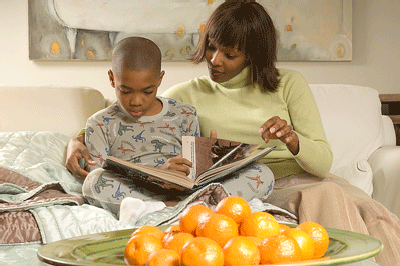NEWS AND EXPERTS — Adults often complain they are “stressed out.” Increasingly, statistics show, American children are stressed out as well, and the effects on their health, emotional state and cognitive ability can be significant.
It’s well-documented that adult stress can lead to serious illnesses. But many researchers believe that ongoing stress during childhood – from poverty, parents fighting or substance abuse, bullying, violence or other adversity – can harm kids’ brains and other body systems and possibly lead to major health issues when they’re adults. Therefore, it is vital for parents to help their children cope with stress.
“Adults can handle more stress than children, because our brains are already formed and we have many more coping skills,” says Alise McGregor, founder of Little Newtons, an early education center with locations in Minnesota and Illinois. “Research shows there are lasting effects from stress on kids’ development. Not exposing your child to any stress at home, of course, is ideal, but in today’s world there is so much affecting kids that parents need to know how to help them through it.”
Statistics cited in a greatschools.org article reflect the higher levels of stress that American children are experiencing: suicides among adolescents have quadrupled since the 1950s; and in the past decade, using pharmaceuticals to treat emotional disorders has increased 68 percent for girls, 30 percent for boys.
McGregor suggests four ways parents can help their children cope with stress:
•Listen to them and communicate. “By listening to them, you are acknowledging their feelings but also strengthening the trust/bond you have with your child,” McGregor says. “Trust is so important in childhood. They feel supported and feel better being able to get it off their chest.”
•Exercise. This is easy, fun and often necessary as a coping mechanism. “Children who are physically active
release stress as well as build confidence,” McGregor says. “And they sleep better, which in turn makes them better equipped to take on their day.”
•Take care of yourself, slow down. Children are aware of their surroundings and look to their caregiver for support. “If a caregiver is not fully equipped to handle their own stress, they certainly can’t fully support a child,” McGregor says. “We often are in such a hurry that many of the basic necessities of care-giving are rushed through. Children can feel the stress caregivers are experiencing and often will act out.”
•Teach them relaxation techniques. Just as parents teach children how to throw a baseball or build a tower with blocks, they should also teach them how to cope with stressful situations in life, McGregor says. “There are ways to do this, such as count down from 10, or ‘breathe in the soup, blow out the soup.’ It slows down their ‘hyperstate’ of accelerated heart rate and fast breathing.”
“Most parents have the skills to deal with their child’s stress,” McGregor adds. “The time to seek professional help for a child’s stress is when any change in behavior persists, or when the stress is causing problems at home or school.”
Alise McGregor is the founder of Little Newtons, an exceptional child care center focusing on early childhood education with four locations in Minnesota and one in Illinois. For more information, visit: www.littlenewtons.com
